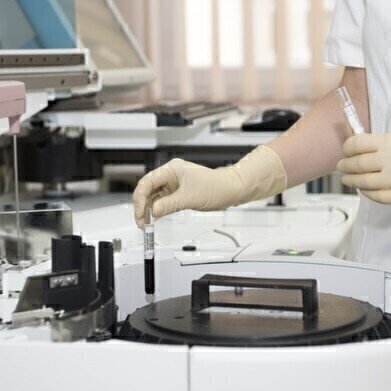Electrophoretic separations
Can Chromatography Help Us Detect Cancer Earlier?
Nov 11 2016
Japanese researchers have identified potential biomarkers that might be used to improve the detection of pancreatic cancer. The team from various universities in Japan and the National Cancer Center in Tokyo, published their findings in the journal PLOS ONE — Identification of IGFBP2 and IGFBP3 As Compensatory Biomarkers for CA19-9 in Early-Stage Pancreatic Cancer Using a Combination of Antibody-Based and LC-MS/MS-Based Proteomics.
Pancreatic cancer — lethal tumours
Pancreatic cancer is considered one of the most lethal cancer types — with only 6% of sufferers surviving over five years. Part of the reason for the low survival rates is due to the difficulty in detecting the cancer at an early stage. Like other types of cancer — the earlier that the cancer is diagnosed and the better the chance of recovery and survival. Unfortunately, many cancers remain hidden and only present symptoms a person is likely to notice when the cancer has developed to a late stage.
Therefore, researchers are working to develop tests that can spot cancers in their early stages. The National Health Service in the UK currently offers three screening programs — in cervical, breast and bowel cancer — to people considered to be in a high-risk group with the aim of spotting cancers earlier. Screening programs for other cancer types are being worked on — but the tests must give accurate results and be useful to a large percentage of the population for the test to be used routinely.
Biomarkers in the blood
The team in Japan looked to develop a method for detecting early stage pancreatic cancer using a blood test. They discovered certain proteins in the blood which could improve the detection of pancreatic cancer — especially when used in combination with other blood biomarkers. The team looked at 130 proteins in the blood of 106 healthy people and 164 pancreatic cancer patients. They found 23 proteins that had significantly changed in the blood samples between the two groups.
To analyse such a large sample size, the team developed a high throughput liquid chromatography – mass spectrometry set-up that used an automated sample robot. This allowed an analysis of over 1000 samples per week — a conventional system would only manage around 80. The use of HPLC to analyse blood biomarkers is the subject of the article, Chiral Amino Acid and Peptide Separations – the Next Generation.
Better prognosis?
After they had identified the biomarkers, they could diagnose some early stage pancreatic cancer patients who were negative for an existing diagnostic biomarker. They were also able to show that the techniques and biomarkers they had identified might be useful in diagnosing other forms of cancer. Professor Ohtsuki — a lead researcher on the work — said "These diagnostic markers are expected to contribute to the improvement of cancer prognosis, because early detection provides patients with a better chance of complete cure through surgery."
Events
Apr 22 2025 Kintex, South Korea
Analytica Anacon India & IndiaLabExpo
Apr 23 2025 Mumbai, India
Apr 27 2025 Portland, OR, USA
May 11 2025 Vienna, Austria
May 18 2025 Tempe. AZ, USA












